Get It Made in Korea
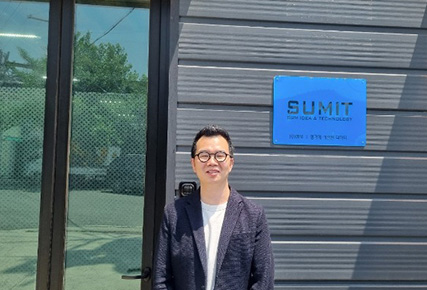

Sumit offers services that cover the product development value chain, from research to product design to prototyping and testing to refinement to final production.
Key facts
| Industry | Product design, engineering |
| Mainstay products/services | Product development consulting, researching, design, prototyping & testing, refinement, production supervision |
| Technology forte | One-stop product development service |
| Main customers | Electronics, medical devices, kiosks, toy companies in Korea |
| Headquarters | Suwon, Gyeonggi Province, South Korea |
| Overseas expansion | R&D center in Korea, production network in Korea, foreign countries |
| Founding year | 2016 |
Why it stands out
Sumit, a startup for startups, eyes a bigger global market with product development
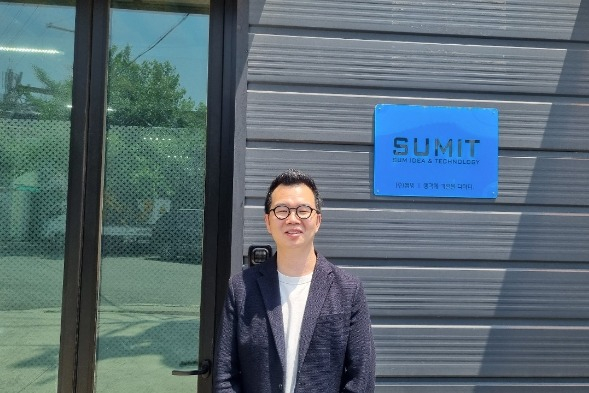
Sumit, a one-stop product development service provider in South Korea, is readying to take another leap to become ŌĆ£a startup for startupsŌĆØ to create synergy and eventually be a manufacturing partner of tech startups at home and abroad keen to turn their ideas into real products, said its founder.
ŌĆ£I started my own company Sumit because I wanted to share my 15 years' experience in product engineering,ŌĆØ said Yoo Jang-seok, chief executive officer of Sumit. ŌĆ£This is why Sumit works with tech startups to help them turn their ideas into real businesses.ŌĆØ
ŌĆ£We are ready to help our clients succeed in building their businesses by significantly shortening their product development timeline.ŌĆØ
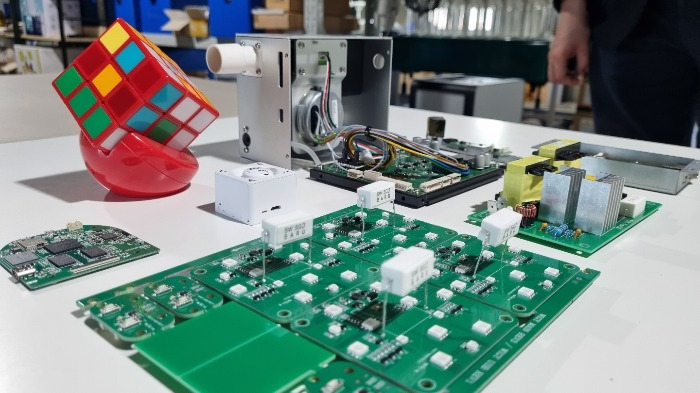
Founded in 2016, Sumit operates StartFac, an online product development platform, and its own product R&D center in Korea.
StartFac is its mainstay service, a manufacturing ODM platform that offers its clients the most optimized solutions for their product and service development, material procurement and final mass production process.┬Ā
With StartFac, the company offers nearly all services in the product development value chain, from research to product design to prototyping and testing to refinement to final production, with its manufacturing network at home and abroad.
It also offers its customers, mainly small startups, logistics services with its partnering companies.┬Ā┬Ā
STARTUP FOR STARTUPS┬Ā┬Ā
Because early-stage startups make up nearly 90% of SumitŌĆÖs clients, Sumit places great priority on detecting all possible errors or defects with only a limited number of their sample products before the final stage of product manufacturing, a reason why his office is full of prototypes and sample products, Yoo said.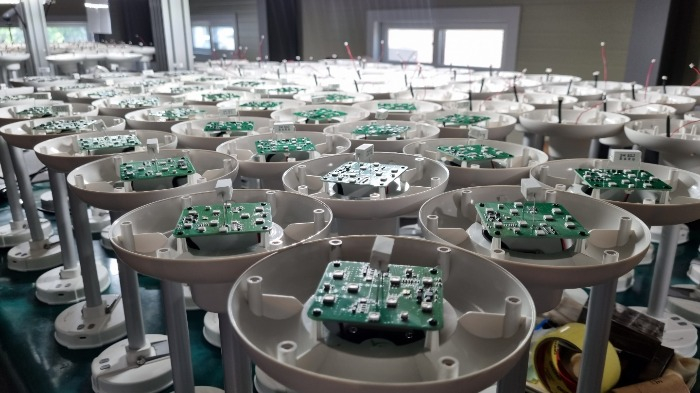
Product engineers at Sumit dissemble and reassemble samples and change their designs if necessary.
ŌĆ£We are a startup partner that oversees the whole (product development) process from design to manufacturing,ŌĆØ said the Sumit founder. ŌĆ£Because we design product concepts, we can make quick but right decisions that can address any issues arising during the development process,ŌĆØ which is hard for startups without industrial design expertise.
ŌĆ£We are the medium between our clients and manufacturers.ŌĆØ
This is why the company also takes the due diligence process seriously in product development. ┬Ā┬Ā
R&D-BACKED PRODUCT DESIGN
Sumit conceptualizes a product design from ideation and comes up with specifications of industrial details that determine the form of an engineering product during R&D.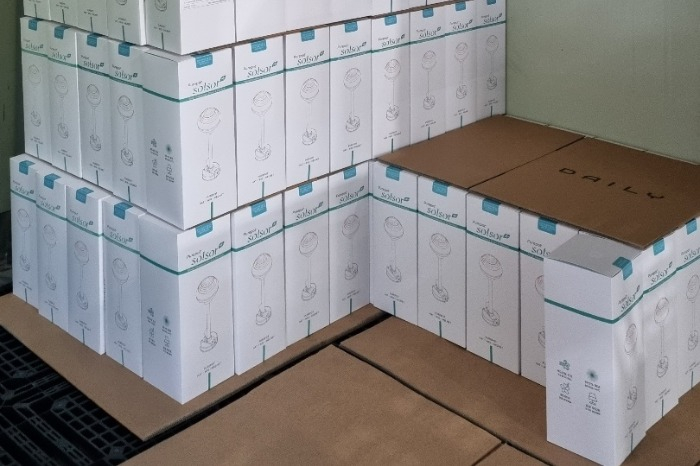
For this, the company makes minimum viable products (MVP) with the most basic functions to assess whether an initial idea can be turned into a real product through mass production.
ŌĆ£R&D is a critical part not only during the process of developing a product but also after its development ... R&D is necessary to come up with a broad plan that covers the whole product development process from the initial step to the last step of evaluating a final product,ŌĆØ said Yoo.
PRODUCT DESIGN ENGINEER FOR FINAL PRODUCT ASSEMBLY
Sumit is an industrial product design house that designs products and coordinates the manufacturing process for those products. But it also takes part in the product assembly process as a product development consultancy company.ŌĆ£Assembly is the final test of our research and design for a product. It is a process to confirm whether our design engineering is correct,ŌĆØ said Yoo. ŌĆ£It is important to check any design issue and improve it during the manufacturing process if we want to refine the design for a final product within a limited time and cost.ŌĆØ┬Ā┬Ā ┬Ā
Yoo and four of his colleagues once assembled 87,500 parts for a startupŌĆÖs new product over two months without holidays.
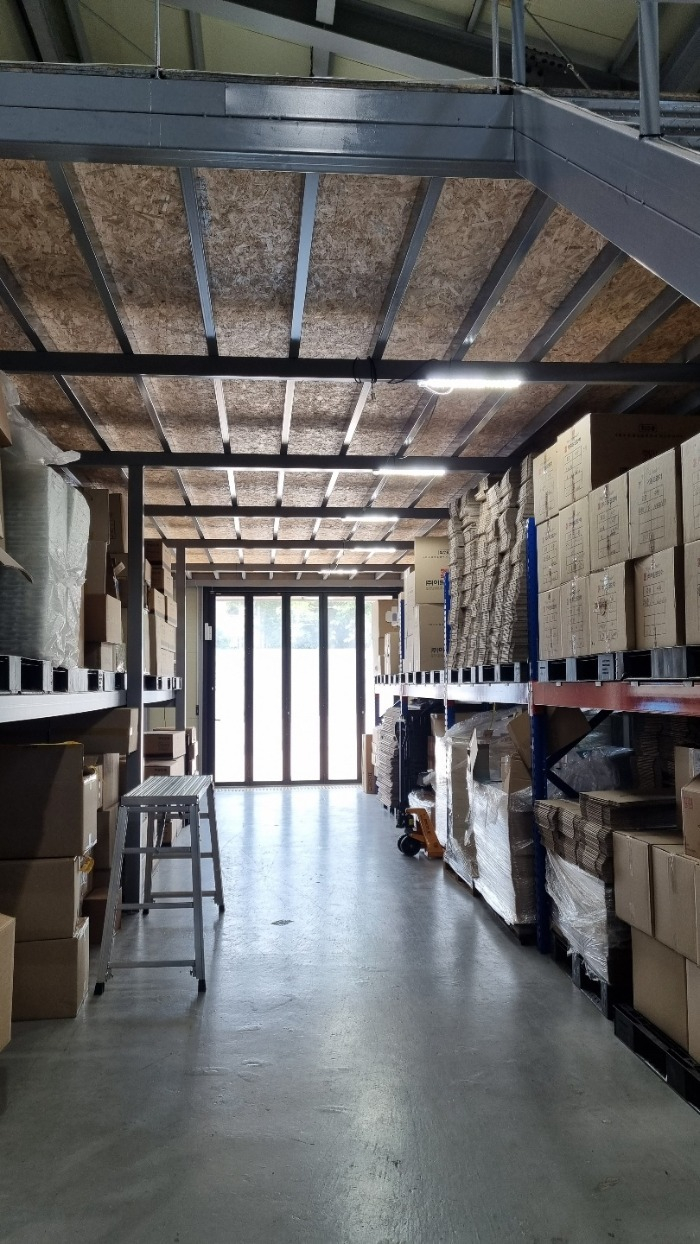
CUSTOMERS
Sumit has worked with many companies in various sectors that make medical devices, kiosks, healthcare devices, green technology, electronics, toys and more.Its clients include not only startups such as Olive Union, Purepot and Lizzle but also big conglomerates Samsung Electronics Co. and Korea Electric Power Corp.
Write to Sookyung Seo at skseo@hankyung.com
Jennifer Nicholson-Breen edited this article.


